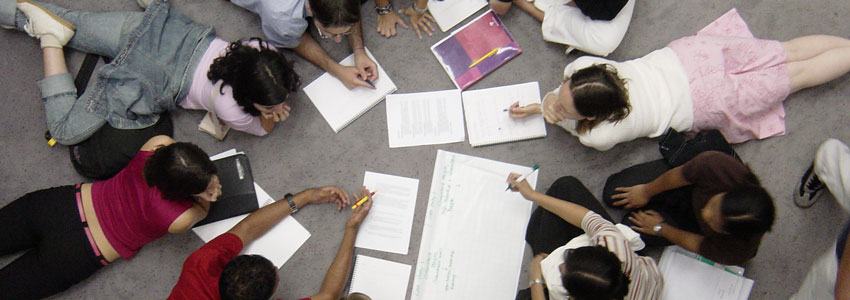
Employability: Matching employers needs with student capabilities
Many graduates are struggling to find work due to increasing competition and fewer openings for new recruits. Concurrently, companies say that they cannot find graduates with the ‘right’ skills. Have universities lost track of the market and are they producing graduates that are not in demand? Just what can be done to bridge this divide?
Higher education is being asked to deliver graduates with the skills to maximise their career potential in an ever changing and globalising work environment, to the advantage of the (corporate) world. But it cannot be a mere case of ‘producing’ what employers ask for. Most employers are unable to articulate what exactly that entails, and the global market is too diverse to know it all anyway.
Connecting students with industry
Today’s talents need to be able to cross boundaries, invent new jobs and new skills as they go along. Most initiatives which aim to connect the world of industry with upcoming student talent are mainly expertise-focused, for example, providing guest lecturers from local businesses, creating more industry cooperation in research projects, corporate representation in university boards etc. These are all well and good, but Delft University of Technology Career Centre (TUD CC) decided to play it differently, focusing on how the gap between employer needs and student capabilities may be bridged, not at institutional level but directly, between students and companies.

It is not about subject-matter skills, or even generic skills, which are sometimes explicitly or implicitly part of the curriculum or on offer as ‘extras’. Students need to develop the flexibility and attitude to always be looking for the next development, for innovation, for adaptability, both in their field of expertise and in their personal and career development. They also need to be able to demonstrate all of their acquired skills, thus also enabling employers to pick the most appropriate candidate. The TUD CC works together with Expertise in Labour Mobility (ELM) to enable students to realise and articulate their skills, by connecting them with companies, informing them of employer expectations, and offering career skills workshops such as writing motivation letters, CV building and interview skills.
A winning CV
When writing a CV, students should follow a format, but this varies between countries. ELM and the TUD CC collaborate to provide up-to-date information on the diverse customs surrounding CV writing. In a world which places great emphasis on self-expression, there are choices to be made when crafting a CV. What are the risks of a non-conforming CV? How should students express themselves? In what corporate cultures would non-conformity be acceptable? How can students find out? By asking and addressing these questions, the focus moves to empowerment of students rather than just providing information.
Understanding employer requirements
Students have a difficult time deciphering vacancies, understanding what jobs actually entail, in addition to knowing what they could do with their degree, especially when entering a market foreign to them. It is not that there are no (suitable) jobs out there; it’s just that job market orientation is complicated. So the TUD Career Centre annually organises at least one big event to bring students and professionals together to clarify student options and simultaneously offer organisations an opportunity to learn about what attracts students.
Previous workshops and activities have been delivered by professionals sharing their experience with students; the 2011 event was based on learning about networking and practicing with professionals and in March 2012, a Career Café took place, where representatives from the corporate world were active in the role of career coach. They helped students formulate an answer to questions such as:
[list style=”list4″ color=”yellow”]
-
- What qualities and skills do you bring to an employer?
- What activities give you energy?
- What job/role would fit your qualities, skills and interests?
[/list]
This offered the professionals an opportunity to share their insights with students and fresh graduates as well as gain an understanding themselves of what attracts and retains young talent. For instance: young female engineers are in high demand, yet not responding to vacancies due to their misconceptions of the corporate world. Following the event, one multinational employer now runs a mentoring programme for female engineers. So, not only did students find answers to the question ‘what type of career is right for me?’, corporate knowledge of employability in the eyes of today’s students was also increased.
Intercultural skills for employers
During the 2013 event this will be taken one step further, regarding companies as a separate target group for career education. TUD CC and ELM will provide companies with workshops where they can learn about intercultural skills, specifically intercultural interviewing, and how to rate the international young talents around them – even if they present their skills in unfamiliar ways. This will help companies navigate the unfamiliar international talent pool that awaits them, which comes about as a result of increasing internationalisation of higher education.
Higher education institutions need to shift from a focus on career education for graduates only (connecting them to industry) to facilitating the participation of industry representatives in activities. Joint student and employer career education is key to bridging the current gap in employer and graduate expectations.
By Caroline Scheepmaker, Manager of the Career Centre, TU Delft, the Netherlands and Nannette Ripmeester, Director of Expertise in Labour Mobility, the Netherlands
First published with EAIE
© Expertise in Labour Mobility B.V. All rights reserved.
